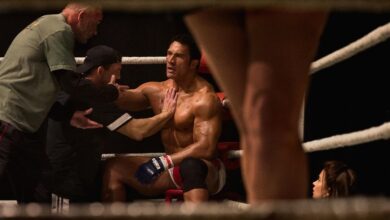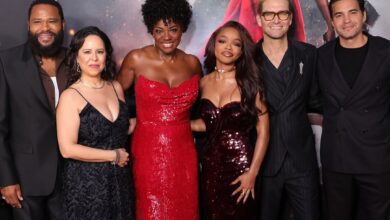Review of “The Woman King”: Does it Deserve the Criticism that the Public has Given it?
Why "The Woman King", the New Film Starring and Produced by Viola Davis, has been the Target of Harsh Criticism by a Good part of the Public? Here we Tell you more About the Film and Analyze Whether or not the Criticism Makes Sense.

Photo: YT-Sony Pictures
LatinAmerican Post | July Vanesa López Romero
Escucha este artículo
Leer en español: Reseña de “The Woman King”: ¿Se merece las críticas que el público le ha dado?
On September 9 at TIFF (Toronto International Film Festival), “The Woman King” was released. The film was directed by Gina Prince-Bythewood, written by Dana Stevens and produced and starring by the Academy Award-winning actress Viola Davis. Despite the fact that critics praised the film, a few days after its premiere, the hashtag #BoycottWomanKing went viral on Twitter. But why was the film so well received by critics and why did the public hate it so much that they wanted to boycott it? Here we tell you more about it.
What is "The Woman King" about?
The film follows the group of Agojie warriors, belonging to the Dahomey tribe in West Africa during the 1820s. The leader of the group is General Nanisca (Viola Davis), who seeks to free the Dahomey women who have been kidnapped by the Oyo enemy tribe. Because of this, King Ghezo (John Boyega) decides that it is time for the Agojie to prepare militarily for a war against the Oyo, who also have ties and negotiations with the European conquerors.
From this premise, this story develops, which has overtones of an epic and manages to mix action with drama in a precise way.
The good and the bad of the movie
Who sees "The Woman King" can not deny that it is a great movie. Although it has a dramatic cut, the rhythm is always maintained thanks to the action scenes in which we see excellent teamwork by Prince-Bythewood and Polly Morgan, director of photography. These scenes are not only very well choreographed, but they are also accompanied by a soundtrack worthy of Terrence Blanchard, who had already worked with the director twice and once again impresses us with his musical work.
Likewise, we find impeccable performances by Viola Davis, whose commitment to the role does not surprise us, John Boyega and Lashana Lynch (Izogie). But if there is an actress who managed to stand out in the film, it was Thuso Mbedu, who plays the young warrior Nawi, who has only just begun her training process. This is his first role in a feature film and, considering that she shared the screen with Davis, it is worth highlighting her great acting work.
Despite these positive points, “The Woman King” limps along with its script, written by Dana Stevens. While the development of the main characters is clear and understandable, several of the stories that make up the entire narrative are weak, unfinished, and some unnecessary.
The film manages to hold its own thanks to the performances and its action genre nature. Likewise, this is a film that generates the emotions that it seeks to generate from its very conception: it speaks of strong women who take justice into their own hands.
Also read: What to Watch on Halloween?: 4 Horror Movies of 2022 that you Cannot Miss
A good movie with an enemy audience
We cannot talk about "The Woman King" without mentioning the hatred it has received from a large part of the public on social networks. Shortly after its premiere at TIFF, the hashtag #BoycottWomanKing began to be used by people in social media who were outraged that the film was not historically accurate. They argue that history glorifies the Dahomey tribe without taking into account that they were also slavers and that it portrays as heroes a people who also took part in the process of European colonization in Africa.
However, the film does put this issue on the table, and although it does not show the Dahomey tribe as the villains, since they are the protagonist tribe, it does not hide the fact that African tribes were also enslavers. The villain is not the European slaver, but the African who allies himself with the colonizers.
But what does public hate really say about the way we view cinema as viewers? If we pay attention, historical accuracy is not something that has generated as much buzz in films as Disney's “Pocahontas”, Zach Snider's “300”, or Ridley Scott's “Gladiator”. It is striking that it is necessary to call for a boycott of a film that glorifies black African women warriors, claiming that this film is inaccurate and that it praises slavers. It was not thought the same way when pioneer John Smith was portrayed as a handsome blond man who came peacefully to "borrow" native land in a children's movie.
A film based on real events is not a documentary, and creative license can be given. “The Woman King” did, but it also adhered to historical accuracy in certain aspects, not all. This response from the public based on arguments that do not seem to exist for other productions that take even more creative license can hide behind an internalized misogyny.




